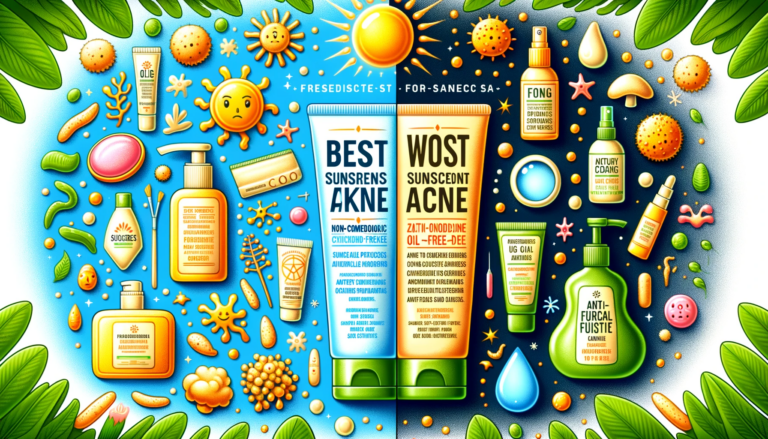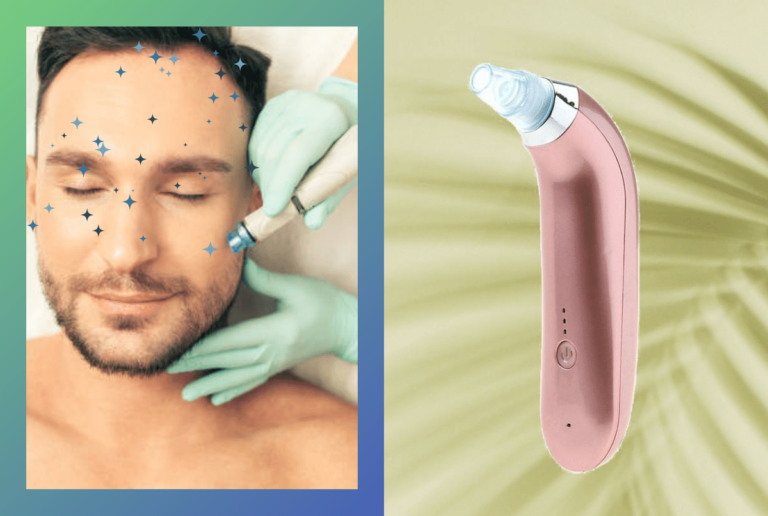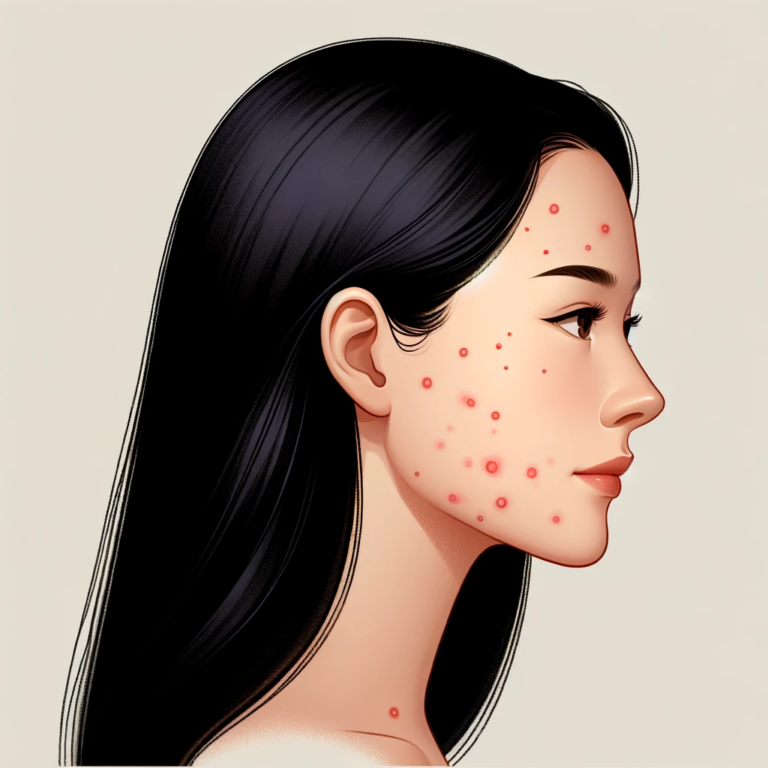Does Accutane Push Blackheads Out?
Wondering if Accutane is the superhero you need to combat those pesky blackheads?
Accutane, a powerhouse in the realm of acne treatment, works its magic far beneath the surface, targeting the root causes of acne, including blackheads.
But does it really push blackheads out? Let’s delve into the mechanics of Accutane and uncover its role in your battle against blackheads.
Well, we’ll be going over:
- How does Accutane work to alter the environment within your pores that leads to blackhead formation?
- What can you expect during your treatment in terms of blackhead elimination?
- Are there any additional steps you should take to support Accutane’s blackhead-busting efforts for optimal results?
Let’s dive in.

How does Accutane work?
Accutane, known scientifically as Isotretinoin, tackles acne differently than other treatments. Unlike topical solutions that work on the surface, Accutane dives deep into the root of the problem by drastically reducing the size of the skin’s oil glands. These glands are often accountable for acne outbreaks because they produce an excess amount of oil. By shrinking these glands, Accutane significantly cuts down oil production.
Moreover, it aids in renewing your skin at a faster pace. This accelerated cell turnover is crucial in preventing pores from becoming clogged with dead skin cells, a common precursor to blackheads and acne. Accutane also has anti-inflammatory properties, which help to reduce the redness and swelling often associated with severe acne.
When it comes to blackheads, Accutane’s effect is two-fold: firstly, by decreasing oil production, your skin becomes less hospitable to the formation of new blackheads; secondly, the increased cell turnover helps to push existing blackheads out of your pores. This process doesn’t happen overnight but unfolds over several months as your skin continues to adjust and heal.
The impact of Accutane on blackheads
If you’re battling persistent blackheads, you’ve likely heard of Accutane (Isotretinoin) as a potent treatment option. Unlike topical treatments that target the surface, Accutane addresses the root cause of blackheads by dramatically reducing the size of the skin’s oil glands. This reduction in oil production means your skin becomes less welcoming to the formation of new blackheads.
Moreover, Accutane boosts cell turnover, a crucial process where dead skin cells are replaced by new ones at a faster rate. This accelerated cell renewal helps push existing blackheads out of your pores, cleaning your skin from the inside out. It’s important to note that this process doesn’t happen overnight. Your skin needs time to adjust and heal, so patience and consistency in treatment are key.
Besides its direct impact on blackheads, Accutane’s anti-inflammatory properties also play a significant role. They help reduce the redness and swelling often seen with acne, providing a dual benefit for your skin care routine. By understanding how Accutane works, you’re better equipped to decide if it’s the right treatment for your persistent blackheads.
Does Accutane push blackheads out?
If you’re struggling with persistent blackheads, you might be wondering if Accutane can help. Accutane, a powerful acne treatment, is known for its ability to combat severe acne. But does it push blackheads out? The short answer is yes.
Accutane works by decreasing the size of the skin’s oil glands. This reduction in oil production makes your skin less welcoming to new blackheads. Moreover, Accutane accelerates cell turnover. This means that it helps your skin to shed dead cells more quickly, pushing existing blackheads out of the pores.
It’s important to understand that this process doesn’t happen overnight. Patience and consistency in treatment are crucial. The mechanics of Accutane—reducing oil production and speeding up cell turnover—are what make it possible for blackheads to be pushed out over time. This, combined with its anti-inflammatory properties, makes Accutane a strong contender for those looking to clear their skin.
Common misconceptions about Accutane and blackheads
When you’re navigating through acne treatments, you’ll likely come across various myths and half-truths, especially about Accutane and blackheads. It’s crucial to separate fact from fiction to make informed decisions about your skincare.
Firstly, many believe Accutane acts as an immediate solution for blackheads. However, Accutane’s effectiveness builds over time, focusing on reducing oil production and accelerating skin renewal. Immediate results are rare; patience is key.
Secondly, there’s a misconception that Accutane’s impact on blackheads is purely superficial. In reality, Accutane works from within, altering the environment of your skin to make it less conducive to blackhead formation. This process is not just about removal but also prevention.
Lastly, some think once you start Accutane, blackheads will never recur. It’s important to understand that while Accutane significantly reduces the likelihood of blackheads reappearing, maintaining a consistent skincare routine post-treatment is crucial for lasting results.
Tips for managing blackheads while on Accutane
While you’re navigating your Accutane journey, it’s essential to adjust your skincare routine to manage blackheads effectively. Understanding that Accutane alters your skin’s sensitivity, adopting gentle yet effective practices can make a significant difference.
- Use a Gentle Cleanser: Opt for mild, non-comedogenic cleansers that don’t strip your skin of its natural oils. Harsh products can aggravate your skin, counteracting Accutane’s benefits.
- Stay Hydrated: Increase your water intake. Hydrated skin tends to be less prone to blackheads as it maintains a balanced oil production.
- Moisturize Regularly: Find a lightweight, oil-free moisturizer to keep your skin hydrated without clogging pores. Accutane may dry out your skin, making a consistent moisturizing routine crucial.
- Avoid Harsh Exfoliation: While it might be tempting to scrub away blackheads, harsh exfoliants can irritate and damage your sensitive skin. Opt for gentle chemical exfoliants if needed, and always consult with your dermatologist first.
Implementing these strategies can help manage blackheads without disrupting Accutane’s effectiveness. Remember, patience and gentle care are key.
Conclusion
Understanding Accutane’s role in blackhead treatment requires patience and a clear grasp of how the medication works. It’s not a quick fix but a profound change in your skin’s oil production and renewal process.
Remember, while Accutane can significantly cut down the chances of blackheads, your journey doesn’t end with the last pill. A dedicated skincare routine is your best ally in maintaining those clear skin victories long term. So hydrate, cleanse gently, and moisturize as you let Accutane do its deep, transformative work.
Together, you’ve got this.






